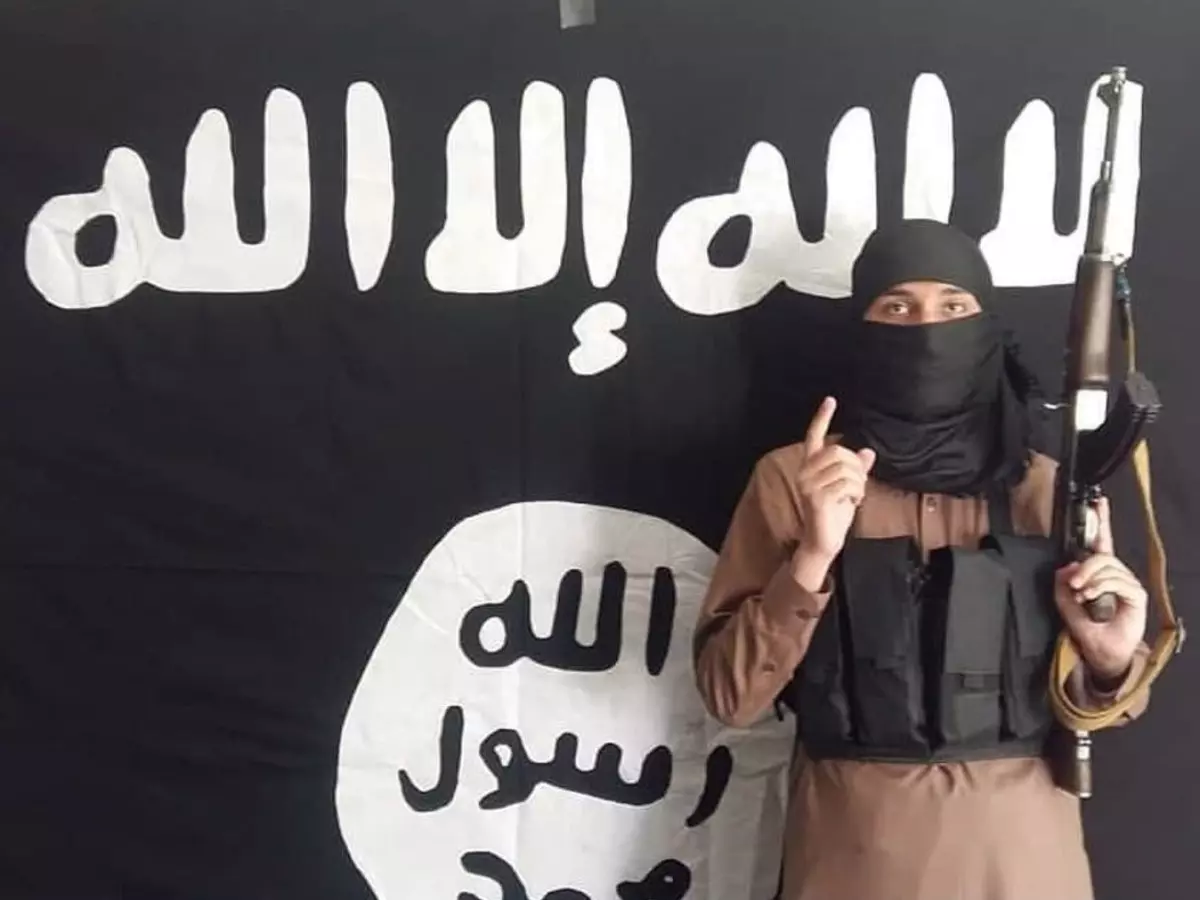Explained: What is IS-K And What Relationship They Have With Taliban And Al-Qaeda
ISK is the official affiliate of the Islamic State which is operating in Afghanistan. IS officially acknowledged it in January 2015. It was founded by leaders of the Pakistani Taliban, Afghan Taliban and the Islamic Movement of Uzbekistan.

The Islamic State - Khorasan aka ISIS-Khorasan, ISKP or IS-K have claimed responsibility for the deadly blast that rocked the Afghan capital on Thursday.
Two suicide bombers and gunmen attacked crowds of Afghans flocking to Kabul's airport on Thursday, killing at least 85 Afghans and 12 US troops.
According to the terror group it targeted American troops and their Afghan allies.
 AFP
AFP
IS-K also released the photo of the bomber who carried out the attack. The image shows the alleged attacker standing with the explosive belt in front of the black IS flag with a black cloth covering his face, only his eyes showing.
 Longwar
Longwar
IS also said the bomber managed to get past Taliban security checkpoints to come within 5 metres (yards) of a gathering of US soldiers, translators and collaborators before detonating his explosives. It said Taliban were also among the casualties. The extremist IS group has battled the Taliban, which it views as traitorous for agreeing to a peace deal with the United States.
Who is ISIS-K?
ISK is the official affiliate of the Islamic State which is operating in Afghanistan. IS officially acknowledged it in January 2015. It was founded by leaders of the Pakistani Taliban, Afghan Taliban and the Islamic Movement of Uzbekistan.
Shahidullah Shahid, a spokesperson of the Tehrik-i-Taliban Pakistan was one of the most recognised faces of IS-K.
 File Image
File Image
Shahid who was the TTP spokesperson from 2006 was removed from the post after he declared allegiance to Abu Bakr al-Baghdadi in 2014.
Later he Shahid and several other TTP commanders fled to Afghanistan where they founded IS-K.
In a 2015 video, the group's leader at the time, Hafiz Saeed Khan, and other top commanders pledged their allegiance to Baghdadi and declared themselves administrators of a new ISIS territory in Afghanistan.
 long war
long war
The new outfit emerged in Nangarhar province, near the border with Pakistan and had several foreign nationals in its ranks.
From Kerala To Khorasan
Nearly two dozen Keralites who had tried to join ISIS are confirmed to have been with IS-K. While most of the men have been killed in either drone strikes or blew up as suicide bombers, at least three of their wives were arrested by the Afghan authorities and were jailed after the group was defeated.
 IS Khorasan Release
IS Khorasan Release
After the Taliban over-ran the country earlier this month, the militants had freed several ISIS terrorists from jail, including the three women from Kerala. Their whereabouts are now unknown.
Early days of IS-K
In early 2015, IS-K managed to take control in several rural districts in the north and northeast of Afghanistan from the Taliban and launched a lethal campaign across Afghanistan and Pakistan.
 islamic state khorasan
islamic state khorasan
The Afghan that was considerably weakened by this time was seen as an enemy by the IS-K.
Ideological difference with Taliban
Since the Taliban and its activities were limited to Afghanistan, IS-K viewed them as ¡°filthy nationalists¡± while they aimed to establish a global caliphate.
This, however, did not stop IS-K from poaching Afghan Taliban leaders and militants.
IS-K was blamed for several attacks against minority groups, public areas and institutions, and government targets in major cities across Afghanistan and Pakistan.
Terror Monitor : Islamic State's Khorasan Province
¡ª Emal Wardak ?? (@EApgan) January 30, 2018
Releases Pictures Of 5 Suicide Bombers Who Carried Out Suicide Attack On Kabul Military Academy.#pakistan is #state_sponsorof of #terrorism. pic.twitter.com/SJ2RQB5xjR
At one time IS-K had over 3000 militants with them and by 2018, it had become one of the top four deadliest terrorist organizations in the world, according to the Institute for Economics and Peace's Global Terrorism Index.
Defeat of IS-K
By 2019, IS-K was on its back foot after suffering major territorial, leadership and rank-and-file losses to the US-led coalition and its Afghan Army which culminated in the surrender of over 1,400 of its fighters and their families to the Afghan government in late 2019 and early 2020.
Following this surrender, IS-K was viewed as to be defeated by most agencies and defence experts.
However, the presence of its lone wolves and sleeper cells have were known to the agencies.
 AP
AP
Fear of IS-K coming back
Many had also believed that IS-K will try to make a comeback after the US leaves Afghanistan and would fight for territorial control with the Taliban.
But since the Taliban is already in firm control of the country, even before the US has left, it is yet to be seen how much of a comeback it can make in the country.
With hundreds of its men who were released by the Taliban from jails currently roaming free, they could very well regroup.
The IS-K is likely to remain a threat in Afghanistan and its views on women and minorities are far extreme than the now 'moderate' Taliban was ever was.
